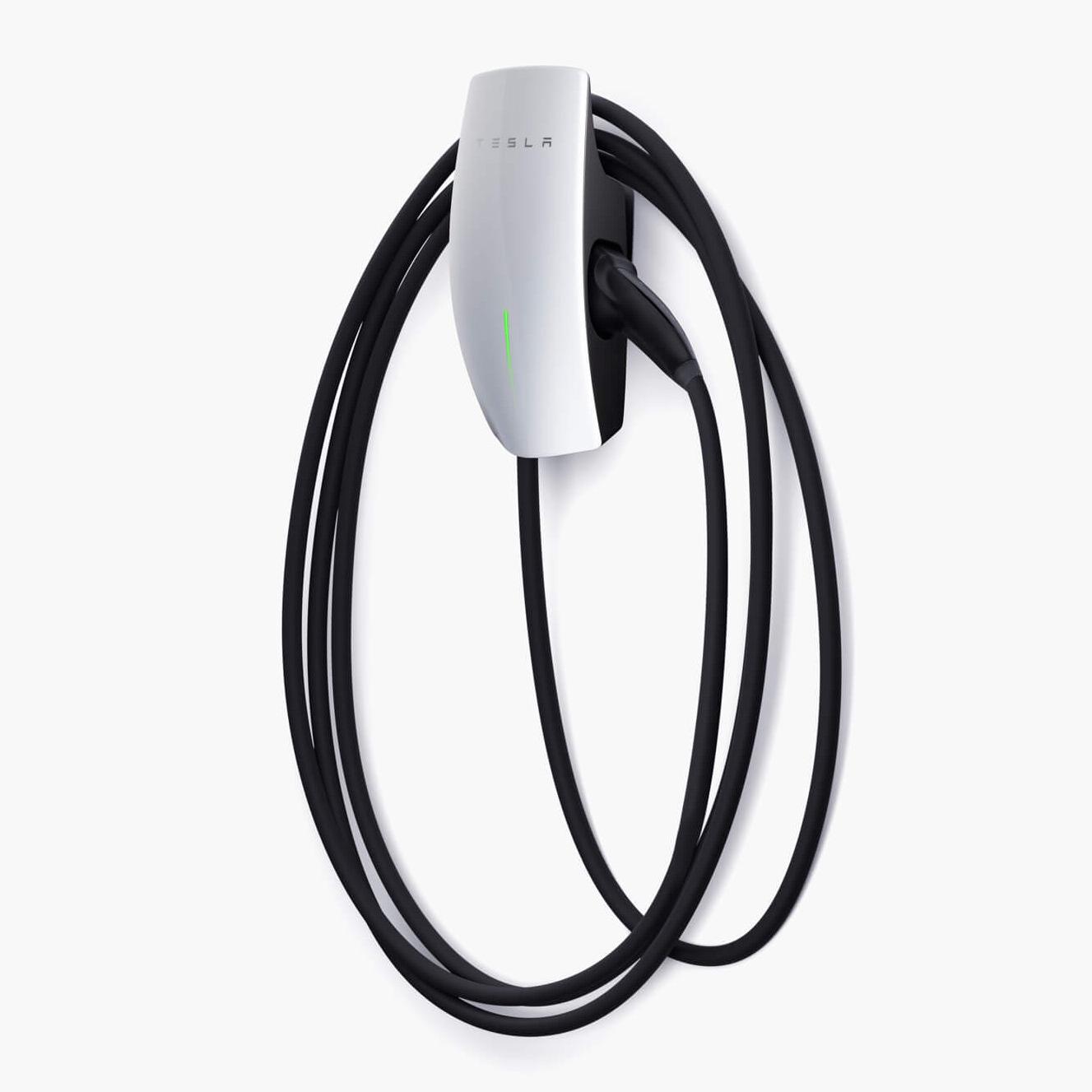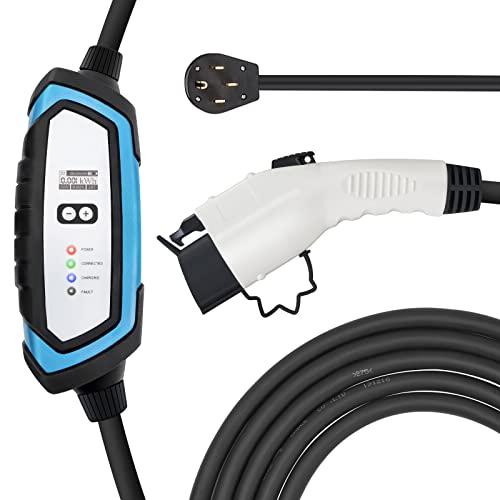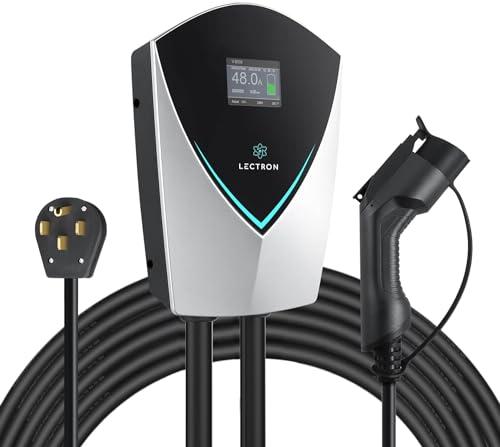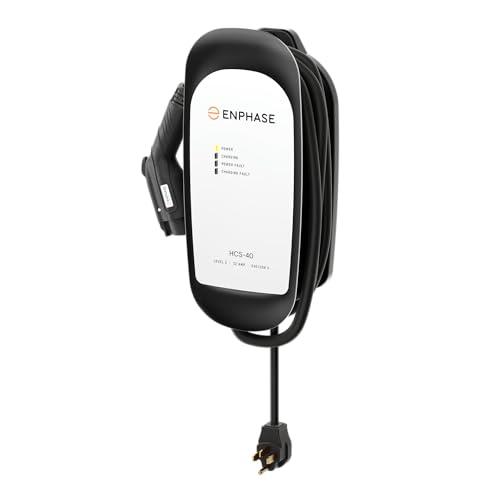Range
Find out how many miles you can drive on a full battery charge.
With the EV Range Calculator you will be able to solve 3 main tasks:
- determine the charging time of an electric car;
- find out the cost of charging;
- identify the most profitable network of charging stations.
This service will be useful to absolutely all owners of electric cars. Using it, you can calculate the cost and speed of charging from the home outlet. All you have to do is to select the appropriate type of socket and the cost per kilowatt of your electricity provider. The Electric Vehicle Range Calculator is as detailed as possible. It allows you to determine the price and intermediate charging time.
Calculate Mileage based on your home battery charger.
The main difference from competitors is that they are not as informative. In addition, other calculators do not allow you to see the actual prices in the networks of charging stations, as Supercharger. In other calculators, you have to enter the data manually. The above disadvantages apply to most calculators that only allow you to calculate the cost of charging from an outlet. If you want to save your time and money, this is the place to go. Save the EV Range Calculator to your bookmarks =)
EV Range Calculator Has The Answer To Everything
Calculating Electric Vehicle Electricity Consumption with the EV Range Calculator
How many miles will a single charge last? How many watts does an average electric car use? It's not enough to know the range figures given by the automaker. Often these values are very far from the real numbers. That is why you should use the [EV Range Calculator], which will be able to calculate the range figures even after 15 minutes of charging.
Key factors affecting electric power consumption
When it comes to accurately calculating range and arrival time at your destination, it is important to consider all of the factors that affect battery consumption. In particular, we are talking about such parameters:
- Temperature outside;
- Driving style;
- The average driving speed.
These parameters are equally important for calculating the remaining range. The recommended speed is 30-80 mph, because this is when battery power is at its best. If you drive very slowly, then the charge will be wasted on long idle times in traffic. Driving fast also has a negative effect on power reserve.
The temperature outside is also very important, because the car battery will be discharged faster in frosty weather or in high heat. The optimal temperatures should range from -4 °F to +104 °F.
Depending on road conditions, drivers can combine different driving styles. This allows you to roughly calculate the range and estimate if there is enough power to get you to a particular destination.
Examples of calculations EV range
It is worth considering a few examples to make things clearer. Let's take an average electric car with a range of 250 miles and a 78 kW?h battery. Consider five different driving styles:
- Maximum economy mode, with no lag and very little speed. The reserve will increase by 1.8 times, but it is unlikely that this trip can be called a pleasant one.
- Long trip in summer time. Normal driving style with an average speed of about 60 mph. The range will be reduced to 90% of the recommended value.
- Driving in a hot city. Vigorous steering and high outdoor temperatures will reduce available range to 60% of the original value.
- Driving in freezing winter weather. If you drive within the recommended speed, carefully, then the electric car will cover the same kilometers as when driving in a hot city.
- To all abovementioned it is necessary to add operation of different interior electric equipment: air conditioner, multimedia system, etc. These devices take away valuable watts that could have been turned into distance traveled.
More accurate data on the range can be obtained with the help of a calculator that takes into account all the nuances of the car's charge consumption.
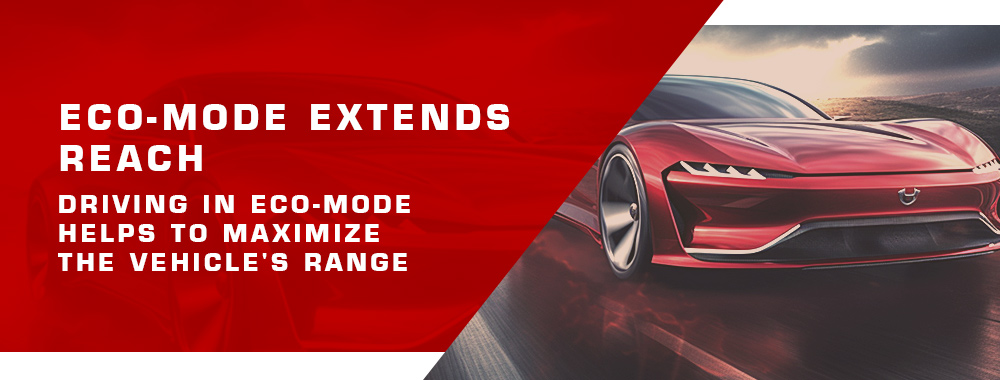
Features of the design of batteries and electric motors
In the manufacture of batteries for electric cars a wide variety of materials are used, which differ significantly in their chemical composition. Engineers are constantly experimenting to make the new electric car even more comfortable, and can go much longer distances on a single charge. Active work is being done in the direction of charging equipment, which is becoming increasingly compact, powerful, and fast.
Automotive companies are working closely with manufacturers. This makes it possible to produce more advanced batteries than the old ones. But it's not just batteries that are in search of innovation. Automakers are also improving their electric motors so that the devices consume electricity more efficiently. After all, raising engine efficiency by just 1 point gives a 2-point increase in range.
How to increase range?
If you follow a few tips, every electric car owner can increase the range of their own electric car a bit. The following tips will help:
- Reduce aerodynamic drag;
- Remove the roof racks, if they are not yet needed;
- Remove any unnecessary weight from the car.
Better electric motors and increased batteries will help significantly increase range, but that's the job of engineers and designers.
The driver should stick to the recommended driving style, especially if the trip will use up almost all of the battery's energy. It is also worth paying attention to the statistics, which will be displayed on the on-board system. It is responsive to any changes in the movement of the electric car.
Charging speed
The characteristics of the charger affect the charging speed, respectively the remaining range after 1 hour of charging will vary depending on the model. If we are talking about a charging station installed in the garage, then it is necessary to refer to the power of the outlet.
There is no possibility to install the charging station directly on the parking lot, then just use an extension cable. All electrical work on the installation of the equipment should be entrusted to a proven electrician, because this requires qualification. A properly connected charger will provide a powerful and very fast car charge.
To estimate charging speed, range and other important parameters of the electric car, you should use this EV Range Calculator. The tool is very handy, especially if you compare it with the nearest competitors.
How far does an electric car travel on a full charge
| 48 Amp EV charger | 50 Amp EV charger | 16 Amp EV charger | |
|---|---|---|---|
| Ford Mustang Mach-E | 28 mi/h | 28 mi/h | 10 mi/h |
| Audi e-tron | 26 mi/h | 26 mi/h | 9 mi/h |
| Porsche Taycan | 30 mi/h | 30 mi/h | 10 mi/h |
You can make a calculation based on other initial data on the page of this calculator.
Factors Affecting Electric Vehicle Range
| Factor | Impact on Range |
|---|---|
| Battery Capacity | The size of the EV battery can impact the range it can travel on a single charge. Typically, a larger battery capacity can provide a longer range. |
| Temperature | Cold temperatures can reduce an EV's range by requiring more energy to heat the cabin and the battery. Hot temperatures can also reduce range by causing the battery to degrade faster. |
| Driving Habits | Aggressive driving, rapid acceleration, and frequent braking can reduce an EV's range by draining the battery faster. Conversely, gentle driving and gradual acceleration can improve range. |
| Vehicle Weight | Heavier EVs require more energy to move, which can reduce their range compared to lighter models. |
| Route Topography | Driving on hilly or mountainous terrain can reduce an EV's range compared to driving on flat terrain. |
| Speed | Higher speeds require more energy to maintain, which can reduce an EV's range compared to driving at lower speeds. |
| Auxiliary Systems | Using the air conditioning or heating system, headlights, and other electrical accessories can drain an EV's battery and reduce its range. |
Unveiling Electric Vehicle Charging Innovation
Revolutionizing Range with High-Voltage Breakthroughs
The pursuit of longer electric vehicle (EV) range is steering toward high-voltage battery systems. With innovative engineering, some EV models are now embracing 800V battery technology, leading to lighter cables, faster charging, and extended range—a boon for the electric revolution.
Efficiency on the Move: The Aerodynamic Frontier
Aerodynamics isn't just for sports cars. EV manufacturers are now sculpting designs that slice through air with less resistance, providing a substantial uplift in range. The EV Range Calculator now factors in drag coefficients to deliver even more precise range predictions.
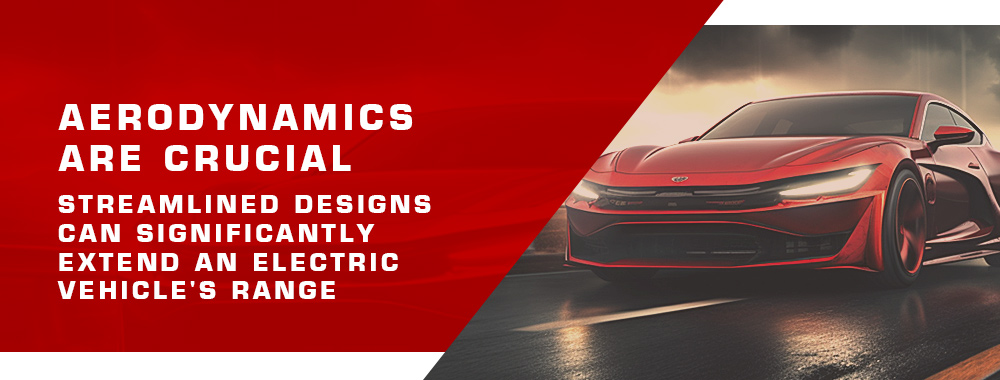
"A sleek design isn't just about aesthetics; it's a silent range extender."
The Electrification of Convenience: Wireless Charging Lanes
Imagine recharging as you drive. Emerging technologies are turning roads into charging platforms, potentially revolutionizing how we view EV range. Dynamic wireless charging systems embedded in highways are no longer a pipe dream but a future near reality.
Adapting to Geographical Influences on EV Performance
Altitude and latitude play a pivotal role in the efficiency of EVs. Mountainous regions can see a dip in range, while moderate climates tend to be range-friendly. The EV Range Calculator incorporates geographical data to tailor range estimations more accurately for your locale.
A Glimpse into the Charging Crystal Ball
Forecasting Charge Times with AI Precision
Artificial intelligence (AI) is transforming how we anticipate charging durations. By analyzing patterns in your charging behavior, AI can predict when you'll need to charge next, helping to optimize your vehicle's battery life and range.
The Art of Charging: Smart Meters and Real-Time Pricing
Smart meters and real-time pricing schemes are emerging as game-changers. They allow drivers to charge their EVs during off-peak hours, significantly reducing costs without compromising on range. The EV Range Calculator integrates these economic parameters to calculate the most cost-effective charging schedule for you.
Did You Know?
The 'Goldilocks' Zone for Charging
Charging your EV to the 'Goldilocks' zone of 20-80% battery capacity can prolong the lifespan of your battery. Overcharging or draining it completely regularly can be detrimental. The EV Range Calculator advises the optimal charging levels for longevity and range.
The Cascade Effect of Regenerative Braking
Regenerative braking is not just about conservation. It's a compounding energy cycle that can add miles to your journey. Each braking event captures kinetic energy, translating into extra range—an essential factor now considered by the EV Range Calculator.
EV Range: Beyond the Battery
The Synergy of Tire Technology
Tires specifically designed for EVs can contribute to a more efficient ride. The EV Range Calculator includes tire performance metrics to project range more accurately, accounting for rolling resistance and tread patterns that are optimized for electric motors.
The Hidden Power of Solar Integration
With solar cells integrated into the structure of EVs, the sun can serve as a supplementary energy source. This emerging technology can provide additional miles to the range, a feature the EV Range Calculator is gearing up to incorporate.
Charging Ahead: The Journey Continues
Expanding Horizons with Software Updates
Over-the-air software updates can do more than fix bugs; they can refine energy management algorithms to squeeze out extra miles. The EV Range Calculator is constantly updated to reflect these enhancements for the most up-to-date range estimations.

Maximizing Your EV's Endurance: Pro Tips
Essential Maintenance for Peak Performance
Regular upkeep is the linchpin of enduring EV efficiency. Heed these maintenance keystones to ensure your electric vehicle cruises smoothly for the long haul:
- Periodic battery inspections to preempt faltering cell performance
- Timely tire rotations and proper inflation to curtail unnecessary power drain
- Brake system checks to avoid energy wastage from dragging components
Battery Longevity: A Charged Focus
Battery longevity reigns supreme in the electric vehicle pantheon. To safeguard your EV's beating heart:
- Avoid exposure to extreme temperatures
- Maintain charge levels between 20% and 80% to thwart premature wear
- Enlist the best charging practices as detailed by energy experts
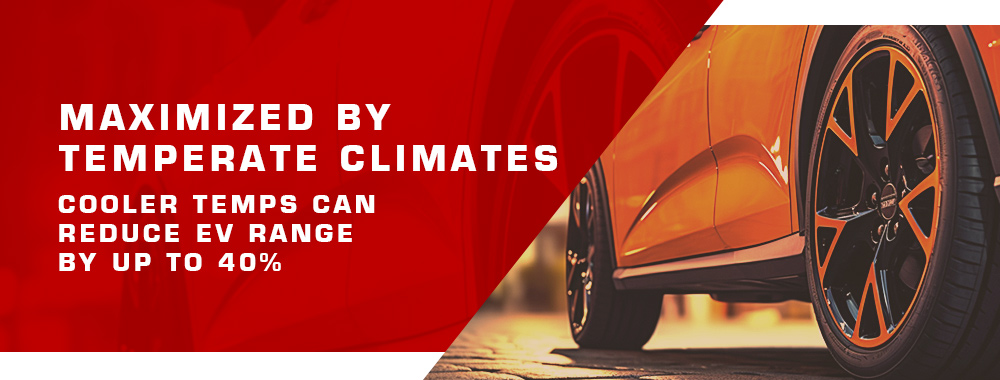
The Art of Electric Car Battery Stewardship
Your EV's battery is the heart of its operation. To preserve its health, avoid exposing your vehicle to extreme temperatures for prolonged periods. When charging, aim for the sweet spot between 20% and 80% capacity—this habit can significantly prolong your battery's lifespan.
"Caring for your EV's battery is akin to nurturing the core of your mobile sanctuary."
Charging Practices for the Energy-Conscious Owner
Intelligent charging habits are pivotal for enhancing battery life. Utilize smart chargers or home-installed units that can schedule charging during off-peak hours to benefit from lower rates and reduce strain on the grid. Embracing regenerative braking can also add precious miles to your range.
Unlocking Potential with Software Upgrades
Firmware and software updates often bring optimizations that can refine energy consumption and bolster range. Staying current with these updates ensures that your EV operates with the latest advancements in energy efficiency technology.
Moreover, modern EVs are not merely machines; they're evolving digital entities. Regular software updates can sometimes unlock additional capabilities and improve existing functionalities, akin to a smartphone gaining new features without changing the hardware.
"With each update, your EV renews its vows to efficiency, introducing refined energy management protocols and optimized operational algorithms."
Facts about EV Range
Electric vehicles with a solar roof option come with a little-known feature: a suntan lotion dispenser, just in case you want to catch some rays while recharging on the go.
In an attempt to combat range anxiety, a new GPS app has been developed that only displays charging stations within your remaining EV range, so you'll never feel stranded again.
Did you know that one of the leading causes of EV range loss is excessive use of the horn? Okay, not really - but honking less might save some energy!
An EV enthusiast has started a petition to change the unit of measurement for EV range from miles or kilometers to "Smiles," because driving electric is just that fun.
To increase their EV range, some drivers have developed a technique called "drafting" – closely following a larger vehicle to reduce wind resistance. Rumor has it that they're also secretly hoping for a tow if they run out of juice.
Under the Hood: Did You Know?
Astonishingly, the proper alignment of your EV's wheels can save you up to 10% in energy consumption. Misalignment not only causes uneven tyre wear but also increases rolling resistance, which can significantly dip into your EV's range reserves.
Power Your Journey with the Right Knowledge
Embarking on an electrified voyage without understanding the nuances of your EV's energy consumption is akin to sailing without a compass. By adhering to recommended charging techniques, maintenance practices, and staying abreast of software updates, you can ensure that your journey is as efficient as possible.
Smart Charging: The Pulse of Efficiency
Embrace smart charging habits that prolong battery life and expand your horizons:
- Employ a programmable charging timer to capitalize on off-peak rates
- Utilize regulated charging stations for optimal charging conditions
- Adopt a balanced charging routine, avoiding both frequent top-ups and deep discharges
Smart charging habits, coupled with conscientious maintenance, can have a profound impact on your EV's performance. But perhaps the most underappreciated aspect of EV care is the role of software updates. These updates can streamline power management and even revitalize older models with improved energy algorithms.
And remember, your EV's efficiency is a reflection of your commitment to its care. The right practices translate into a seamless blend of performance, sustainability, and cost-effectiveness.
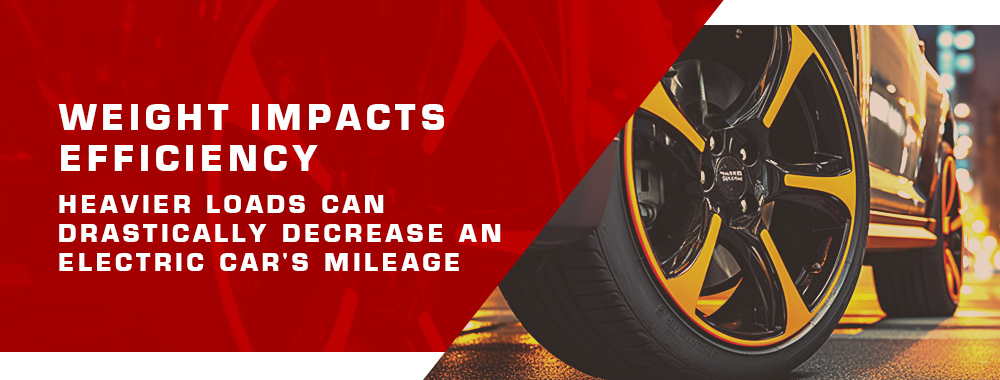
Unlocking Full Potential
Let the EV Range Calculator be your lodestar in this electrified epoch. As it meticulously calculates, it reminds us of the extraordinary synergy between driver, vehicle, and the road that lies ahead.
So, as you plot your course with the EV Range Calculator, remember that it does more than just crunch numbers; it ensures that every journey you embark upon is as efficient as it is enlightening.
Conclusion: Charting the Course with EV Range Calculator
Embarking on the journey of electric vehicle ownership is not just about embracing new technology; it's about committing to a sustainable future. The EV Range Calculator serves as an indispensable co-pilot in this venture, providing a detailed exploration of your vehicle's potential and preparing you for a world where efficiency is paramount.
With the insights gleaned from advanced range calculations, optimal charging strategies, and diligent vehicle care, drivers are equipped to navigate the roadways with confidence. The sophistication of the EV Range Calculator reflects a harmonious blend of innovation and practicality, ensuring that the electrified road ahead is as enlightening as it is exhilarating.
In the ever-evolving landscape of electric mobility, the EV Range Calculator stands as a testament to human ingenuity and a beacon for eco-conscious exploration. It not only demystifies the intricacies of electric propulsion but also propels us toward a future where every journey, no matter how small, contributes to the larger odyssey of environmental stewardship.
Charge forward, explore freely, and let the EV Range Calculator illuminate your path.
